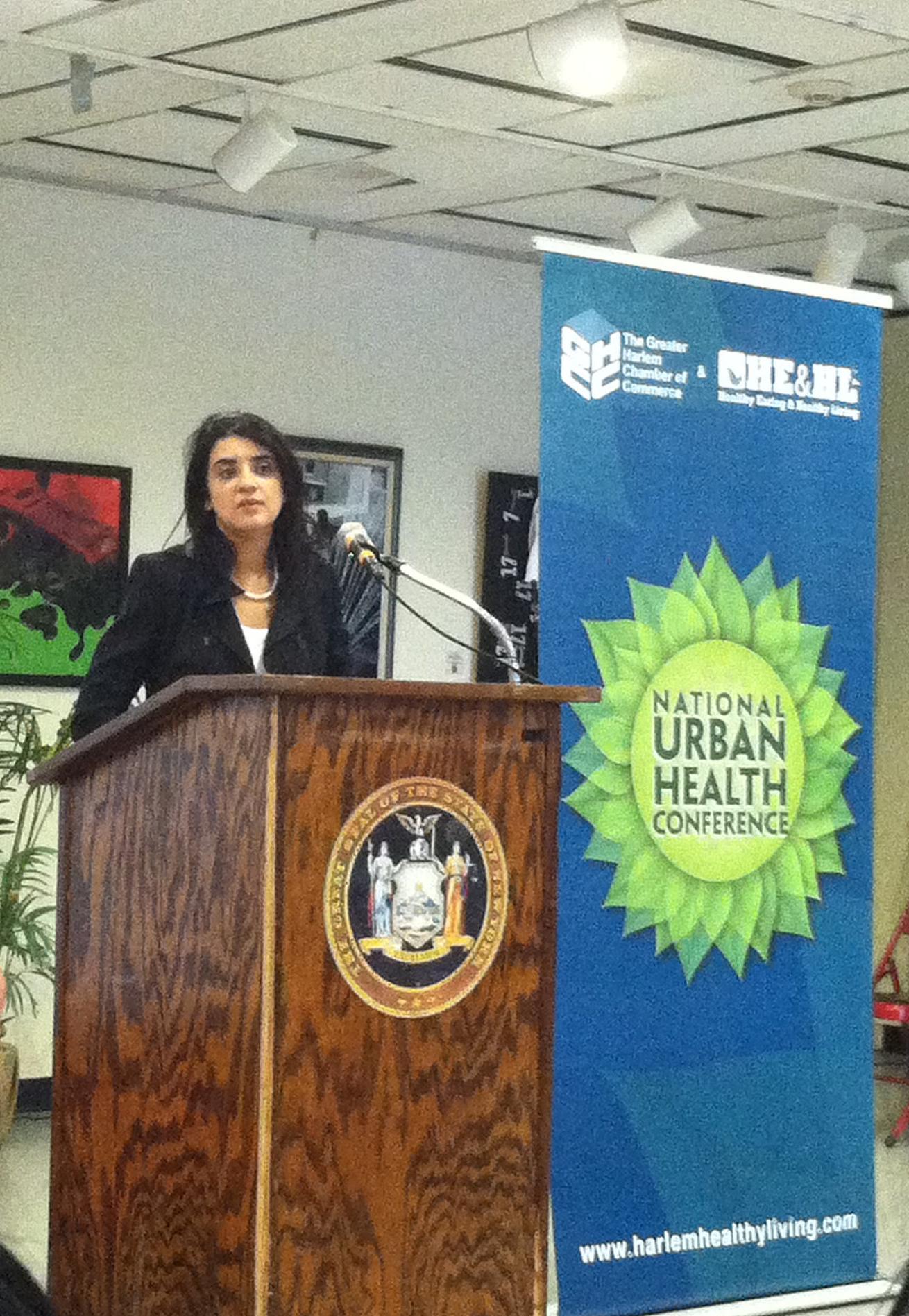News
Prescription Drugs: Patient Safety, Education, and Health Initiatives
Touro College of Pharmacy Experts Speak on a Community Panel About Patient Safety in Pharmaceuticals

Why don’t people adhere to their medication regimens? Where’s the best place to store your medications? What are ways to ensure our loved ones remember to take their medications the right way, the right time?
The answers to these questions, and others, were discussed at the fifth annual National Urban Health Conference, organized by the Greater Harlem Chamber of Commerce. Open to the public, the panel was geared towards empowering and educating the community. This year’s panel topic was “Prescription Drugs: Patient Safety, Education & Health Initiatives,” and was held on Friday afternoon, April 24 at the Adam Clayton Powell Jr. State Office Building Art Gallery.
In his opening remarks, Dr. Zvi Loewy, Interim Dean of Touro College of Pharmacy, provided background on the area, and established the significance of providing awareness about patient safety with pharmaceuticals.
“Any patient taking multiple drugs can become confused over what has or hasn’t been taken on a given day,” he began. “And it can become critically dangerous very soon.” He highlighted one company’s optimized approach of customizing the packaging of each individual’s drugs to circumvent errors, and also spoke about how advancements in pharmacogenomics are enabling “personalized medicine.”
Dr. Batoul Senhaji-Tomza, assistant dean and associate professor at Touro College of Pharmacy (TCOP), offered tips on minimizing the risk of medication errors. She emphasized the importance of communication, centralization and consolidation of one’s medication regimen and how avoiding polypharmacy to the extent possible is essential to safe medication practices.
Following Dr Senhaji-Tomza, associate professor Dr. Natasha Shinkazh spoke more specifically on diseases like diabetes and hypertension. She stressed the importance of controlling blood pressure, taught different ways of identifying (and treating) low- and high- blood pressure emergencies, and also offered tips on recognizing stroke in oneself or others.
Robert Walker, associate at Metro Plus Health Plan, also added ways of enhancing medication adherence. He suggested working with providers to simplify dose regimens (such as being prescribed a medication that is dosed at once daily instead of two or three times a day), and using tangible medication aids such as a pill organizer and even smartphone apps.
Closing remarks were given by Patricia Ricketts, vice president of The Greater Harlem Chamber of Commerce. After the informative session, panelists fielded questions from the audience, and gave out medication diaries as take-home gifts.
“While being on those complex medication regimen can have great benefits to our health and quality of life,” said Dr. Senhaji-Tomza towards the end of her speech, “it is very important that we empower ourselves and loved ones to really understand the purpose and instructions behind our medications.
“Be as inquisitive as possible,” she stressed. “Do not be shy to ask your providers every questions you have. Remember that pharmacists are highly accessible: Simply walk or call your pharmacy at any time for advice.”

